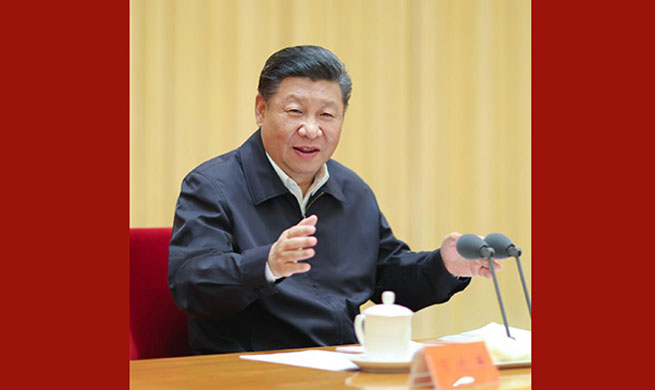BERLIN, July 8 (Xinhua) -- Post-traumatic stress disorder (PTSD), anxiety and some types of inflammation may be alleviated by cannabis-like drugs, according to a research presented on Sunday at the FENS Forum of Neuroscience held in Berlin.
At the Federation of European Neuroscience Societies (FENS) Forum, which will last till Wednesday, research teams from Italy and Canada described related findings on the effects of cannabis-like compounds, artificial compounds that work on natural cannabinoids, on PTSD and colitis.
Using rat models of PTSD, Patrizia Campolongo at the Sapienza University of Rome has found that synthetic drugs that augment brain levels of natural cannabinoids can reduce symptoms of trauma while also treating the cognitive dysfunction, and, moreover these effects are long-term.
"These drugs work in much more targeted brain areas than street cannabis, and, as long as three months after treatment, they stop relapse of anxiety symptoms. PTSD patients often relapse some time after the end of treatment," Campolongo said.
She believes that synthetic drugs influencing levels of natural cannabinoids may act both to reduce the symptoms of anxiety and also break the cycle of relapses.
Campolongo ensured these artificial cannabis compounds have reduced risk of side effects, adding they now need clinical trials to test efficacy on man.
Her work is supported by the studies of Matthew Hill from the Hotchkiss Brain Institute, University of Calgary in Canada, who presented research into links between inflammatory diseases and stress-associated disorders, which often occur together.
His work has shown that levels of the brain's natural cannabis-like molecules are reduced in an animal model of colitis, suggesting that an artificial boost may be necessary and sufficient to alleviate the anxiety associated with this inflammation.
They have found, in a rat model of colitis, that levels of a naturally-occurring cannabis, anandamide, were reduced in several areas of the brain, which resulted in anxiety.
Together, the work of Campolongo and Hill suggest there would be value in well-controlled human studies to assess the medical benefits of cannabis in a range of linked conditions.

















